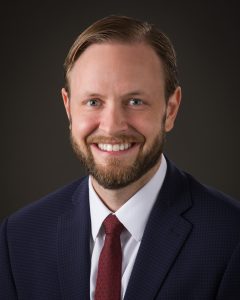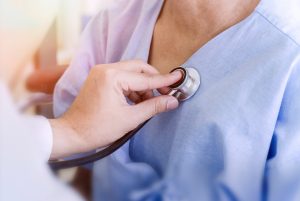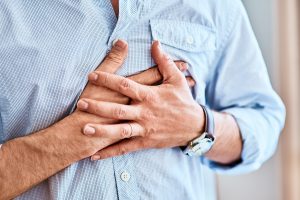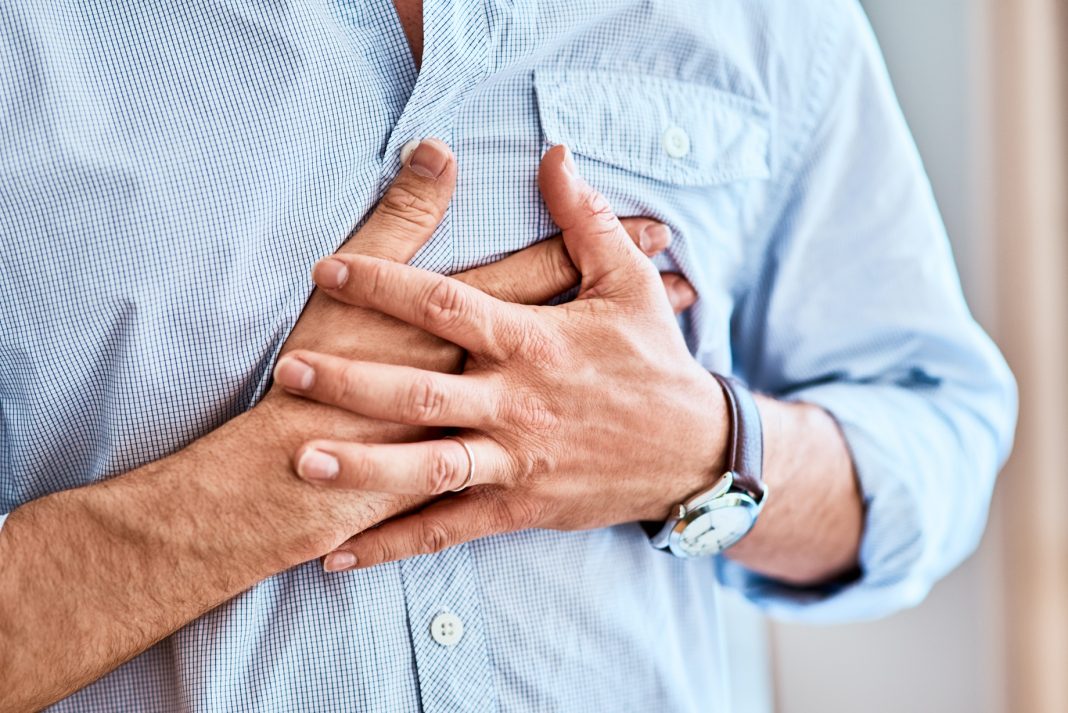The COVID-19 pandemic recently created challenges for both patients and providers at Sedro-Woolley’s PeaceHealth United General Medical Center, and PeaceHealth Medical Group cardiology services were not immune. From mid-March to early May, the medical center’s cardiology clinic was shut down for face-to-face visits and elective procedures. But with statewide re-openings now happening, the clinic is back open and able to provide patients with “ready access.”

What does “ready access” mean? Doctor Anthony Holmes, a PeaceHealth cardiologist, says it means patients can get in to see someone either the same week, or at the latest, the following week. A referral is required by a patient’s primary care physician for non-emergency care. Although cardiologists conducted a fair share of telemedicine appointments during the Governor Inslee’s “Stay Home, Stay Healthy” order, Holmes says cardiology is a medical specialty best conducted in-person. “For cardiology, face-to-face is really where it’s at,” he says. “You have to be able to examine a patient and put a stethoscope on their chest to make diagnoses and really help somebody.”
Now that the clinic is back to normal operating capacity, Holmes says they’ve gotten through their case backlog, and are resuming focus on expanding the clinic’s cardiology services. On June 15, PeaceHealth United General began offering ambulatory cardiac monitoring – a procedure where patients are fitted with monitoring devices that observe heartbeats for 14 to 30 days. Previously, being fitted for such monitoring meant a drive up to Bellingham, Holmes says.
Although invasive surgeries like those for coronary stents, heart valves and pacemakers still require a trip north, a full range of cardiac testing and post-surgery rehabilitation is available at PeaceHealth United General. Testing includes vascular ultrasounds, EKGs, echocardiography, and Technetium Pyrophosphate (PYP) scans. The scans detect abnormal proteins that are a common and treatable cause of heart failure in the elderly.
Cardiac rehabilitation, Holmes says, is especially nice to have close to home, as it often requires a month-long timeframe consisting of multiple visits per week.

Best described as “physical therapy for the heart,” cardiac rehab usually consists of monitored, regimented aerobic exercise on treadmills, where a patient’s heart is gradually subjected to increasing amounts of stress. All the while, the patient is hooked up to an electrocardiographic monitor to check for possible arrhythmias. Although rare, Holmes says some patients can have potentially fatal heart rhythms following a surgery. Already being at the hospital, he says, provides immediate treatment in case it happens.
Other rehabilitation and treatment includes appointments to adjust and monitor medication usage, as well as diet and exercise routines. It’s also important to remember that primary care providers play just as important a role to cardiovascular health as cardiologists do. A primary care provider can address many questions and answers regarding routine prevention, diagnosis and treatment of heart health issues. A referral to a cardiologist is required from the patient’s primary care provider.
As everyone adapts to healthcare in the age of COVID-19, Holmes says the clinic is well-equipped to handle the “new normal.” In addition to following social distancing guidelines, the cardiology clinic institutes temperature checks and requires face masks. Holmes says they have numerous grades of masks, and personal protective equipment (PPE) reserves are adequate.

It’s these types of precautions that hopefully make the decision to seek cardiac care are an easy one. During the “Stay Home, Stay Healthy” order, Holmes says many people, both locally and across the country, put off heart-related medical care because of coronavirus fears. Some of them ended up having heart attacks at home. “Really, any other year, people would have come straight to the emergency room,” he says. “Emergency cases in heart attacks don’t just go down. But they did, because people were trying to tough it out at home.”
Concerning symptoms such as new or worsening chest pain, palpitations, or shortness of breath while exerting yourself, Holmes says, are all things that need to be addressed right away. “Don’t be afraid,” he says, of visiting the clinic, the emergency room, or picking up the phone to dial 911. “It’s a very safe place to come now. We’re here for you, so come see us if you need to.”
For more information, visit the PeaceHealth United General Medical Center website.
Sponsored




































